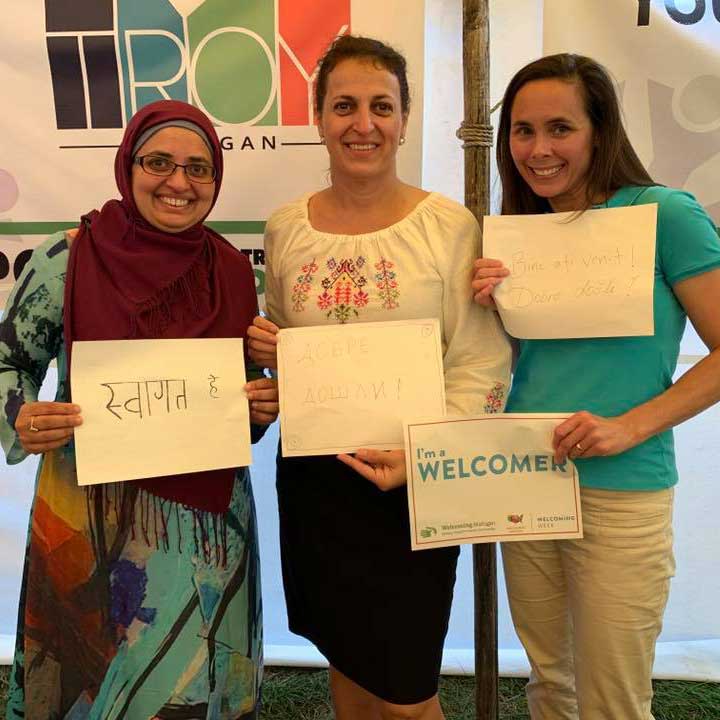Welcoming Michigan
Building Inclusive Communities Across Michigan

Sharing Culture and Connection
Welcoming Michigan works to build mutual respect among all who call Michigan home. We partner across the state to create more welcoming, inclusive and prosperous communities.
In Michigan’s Welcoming Communities, local governments and community leaders work together to ensure immigrants and newcomers of all backgrounds feel valued and are able to fully participate alongside their neighbors in the social, civic and economic fabric of their hometowns. Welcoming Michigan provides tools and support for these locally driven efforts to create more inclusive communities.
Michigan’s Welcoming Communities
We are proud to partner with communities across Michigan to help them become more welcoming, including these 22 Michigan localities that have declared themselves a Welcoming City, County or Township. If you are interested in becoming a Welcoming Community or learning more about welcoming work, contact welcomingmichigan@globaldetroitmi.org
Connect with us
Follow Welcoming Michigan on Facebook, sign up for our newsletter below or email us to learn more.
